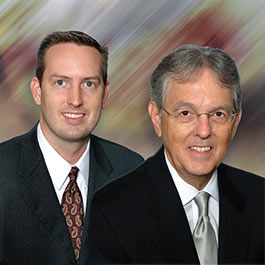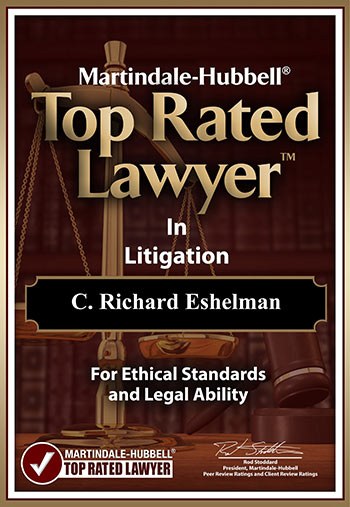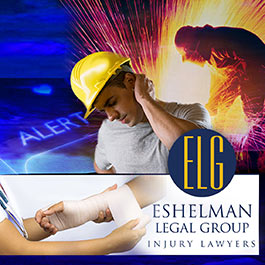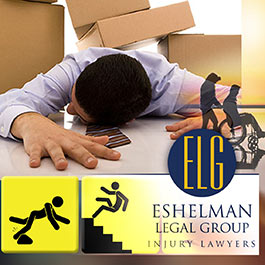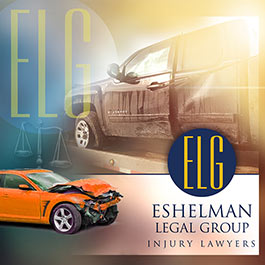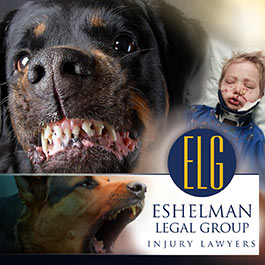Auto Insurance Coverage
Ohio automobile insurance laws do not require the owner of a vehicle to purchase car insurance, but the owner must guarantee proof of financial responsibility to pay for any accident or injuries that result from the owner’s negligence. Ohio law provides three ways automobile owners can do this. The owner can buy the state minimum of $12,500 car insurance, the owner can post a bond of $30,000 with the state treasury, or the owner can post a $60,000 real estate bond with the Ohio Bureau of Motor Vehicles. O.R.C. Ann. § 4509.01. Liability insurance provides compensation to another person in the event that you cause an accident and are found to be liable to that person for damages. You can purchase higher amounts of liability insurance in order to protect your personal assets against the risk of higher damages being awarded against you in the event you cause another serious injuries.
When the Eshelman Legal Group, LLC represents a person who is injured in an accident, one of the first things we do is investigate all possible insurance coverage that is applicable. There are two categories of auto insurance – first party coverage and third party coverage. First party coverage covers you and your property (such as medical expenses, damage to your vehicle, and the insurance company’s duty to defend you in the event that you are sued as the result of your operation of a vehicle, etc.). Third party coverage is for your responsibility to pay for injury caused to other people (and vice versa), whether in your vehicle, or another vehicle involved in the accident. The coverage (and its exclusions) is set forth in your insurance policy. In exchange for the payment of a premium, the insurance company promises to provide compensation in the event of certain occurrences. Though a full recitation of insurance coverage and laws would occupy several large text volumes, the following is brief synopsis of the most typical coverage and issues. Among the various types of insurance coverage that may apply are the following:
Liability Insurance
As stated, this type of insurance is not required by law. O.R.C. Ann. § 4509.01. The liability portion of an insurance policy is specifically designed for defending and settling any claims or paying any judgments rendered against the insured in an automobile negligence claim. If you are injured by the negligence of a defendant, we will make a claim under the bodily injury liability coverage of the negligent defendant’s insurance policy. Liability coverage is not health insurance, and it is not designed to pay for your medical bills as they are incurred. It is designed for a one time settlement or payment for all of your damages. If the automobile owner opts under Ohio law to purchase liability insurance instead of posting a bond, these are the liability insurance minimums required by law:
- $12,500 for bodily injury or death of one person in any one accident
- $25,000 for bodily injury or death of two or more persons in one accident, not exceed the per-person limits above
- $7,500 for injury to or harm to property of others in one accident. O.R.C. Ann. § 4509.01.
Lawsuits in Ohio must be filed against the negligent driver and may not also name the insurance carrier as a defendant. In fact, the jury is not allowed to know that there is insurance coverage available on the defendant. If the jury renders a verdict in excess of the defendant’s liability policy limit, the defendant is then personally liable out of his or her own assets for the additional amount.
Uninsured and Under insured Motorist Benefits
Two other related types of voluntary coverages you can (and should) purchase are uninsured and under insured motorist benefits. These types of coverage protect you against a negligent defendant who illegally does not have liability insurance coverage or has minimum coverage that is inadequate to fully compensate you for your injuries. If you are involved in an accident with an uninsured individual, we would make a claim for you under your own uninsured motorist coverage. Your own insurance carrier would then have to pay any judgment which may be rendered, up to the limits of the policy that you purchased.
If the person who caused the accident has liability insurance, but the policy limit of his or her liability insurance is less than the uninsured motorist coverage of your policy, we can make an additional claim under your own policy for what is called under insured motorist benefits, in the event that your damages exceed the limits of the other party’s liability coverage. A complicated body of case law has evolved dealing with this type of benefit, and the experience of an attorney familiar with these issues is important in order to obtain the maximum amount of recovery for you.
Collision Coverage
Collision coverage is a type of voluntary coverage you can purchase that provides for the repair or replacement of your own vehicle after an accident, regardless of whether or not you are at fault. This is different than property liability insurance coverage discussed above. An innocent victim of an accident may present a claim for the property damage under his or her own collision coverage or under the negligent defendant’s property damage liability insurance coverage. Your own collision coverage normally includes a deductible, whereas property damage liability insurance coverage does not. In an automobile accident case, after a claim has been paid under collision coverage, the insurance carrier that paid the claim may proceed against the property damage liability insurance carrier for the negligent defendant to recover the amount paid out. This process, which is called subrogation, does not affect your recovery.
Call: 1-800-365-0001
The Conclusion
The attorneys at the Eshelman Legal Group understand that no matter how cautious you are, others may not be so careful, and accidents do happen. So we hope you don’t need to, but if you are in a situation where you need the advice of an personal injury attorney, the Eshelman Legal Group is here to help you. For over 40 years we have been assisting accident victims, and we are here to assist you too... because “We’ll make things right.”
Ask yourself this question… who does the adjuster work for? The adjuster works for the insurance company, they do not work for you.
In all matters involving personal injury it is essential that measures be taken promptly to preserve evidence, investigate the accident in question, and file a lawsuit prior to the deadline imposed by the Statute of Limitations. If you or a loved one is a victim of personal injuries, call Eshelman Legal Group LLC, now at 1-800-365-0001. The initial consultation is free of charge, and if we agree to accept your case, we will work on a Contingent Fee basis, which means we get paid for our services only if there is a monetary award or recovery of funds. Don’t delay! You may have a valid claim and be entitled to compensation for your injuries, but a lawsuit must be filed before the statute of limitations expires. The above is not legal advice. That can only come from a qualified attorney who is familiar with all the facts and circumstances of a particular, specific case and the relevant law. See Terms of Use.

